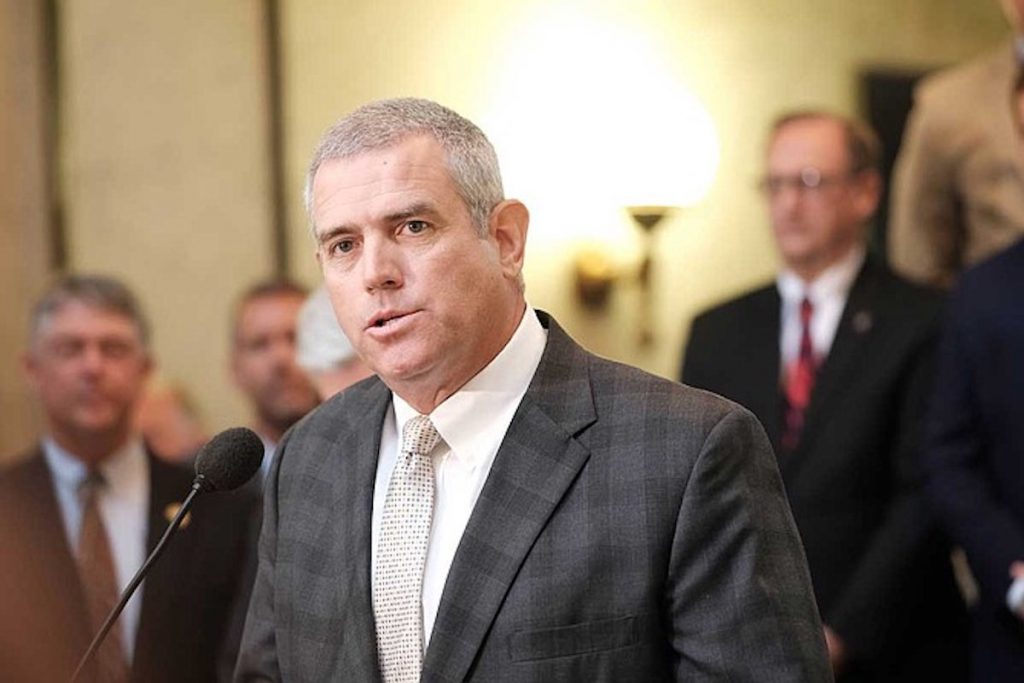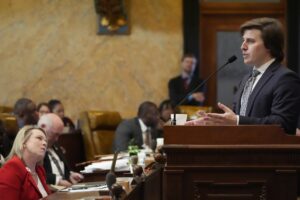The Mississippi Legislature has passed a medical marijuana program, which the governor has already signed. Lawmakers resolved congressional redistricting and in the GOP’s favor. Now, an amendment to restore a form of ballot initiative and a revived attempt at a postpartum medicaid extension have cleared their original chamber.
The 2022 Legislative Session has been remarkably rapid, compared to some of the gridlock seen in the Mississippi Capitol during the pandemic era. With the deadline for general bills to pass out of their original chamber approaching this Thursday, some of the session’s most significant goals are already checked off.
One could almost forget the serious conflict between the two chambers that have derailed legislative and executive priorities during Gov. Tate Reeves’ tenure.
But the smooth sailing of the early session may be close to an end, with the House and the Senate in stiff opposition over some of the major legislation left to be finished. Income-tax reform is already testing the collegiate veneer of the Republican-dominated chambers. House Speaker Philip Gunn, R-Clinton, is seeking a triumph through full elimination of the state’s income tax, while Lt. Gov. Delbert Hosemann is looking to defer the revenue cut that would entail.
This is to say nothing of the massive spending packages on the table thanks to American Rescue Plan Funds. With each of the two chambers now poised to pick apart some of the key proposals of the other, the cooperation of the early session may be unsettled soon.
Statutory, Not Constitutional Amendments
Restrictive restoration of the state’s broken ballot initiative is one last piece of tentpole legislation that may see broad agreement. The House has taken the first step to restore some form of direct democracy to the people of Mississippi, passing HCR 39, which would establish a highly regulated statutory ballot initiative.
Previously, the Mississippi Supreme Court struck down the constitutional ballot initiative that Mississippians used to enshrine voter-identification requirements, eminent-domain regulations and a medical-marijuana program in the state’s constitution, taking the voter-approved nascent marijuana program with it.
Most notably, HCR 39 would replace the now-defunct constitutional-amendment process with statutory amendments, meaning laws passed through the ballot would now be subject to easier legislative tinkering and revision. Constitutional amendments would require another ballot initiative or an act of the Legislature with two-thirds support in both chambers to change.
House Speaker Philip Gunn, R-Clinton, and Rep. Fred Shanks, R-Brandon, authored the bill, though Rep. Nick Bain, R-Corinth, presented it to the House floor.
In addressing the chamber, Bain said the Legislature would be prevented from adjusting the language of ballot initiatives passed by popular vote for two years, except in specific circumstances.
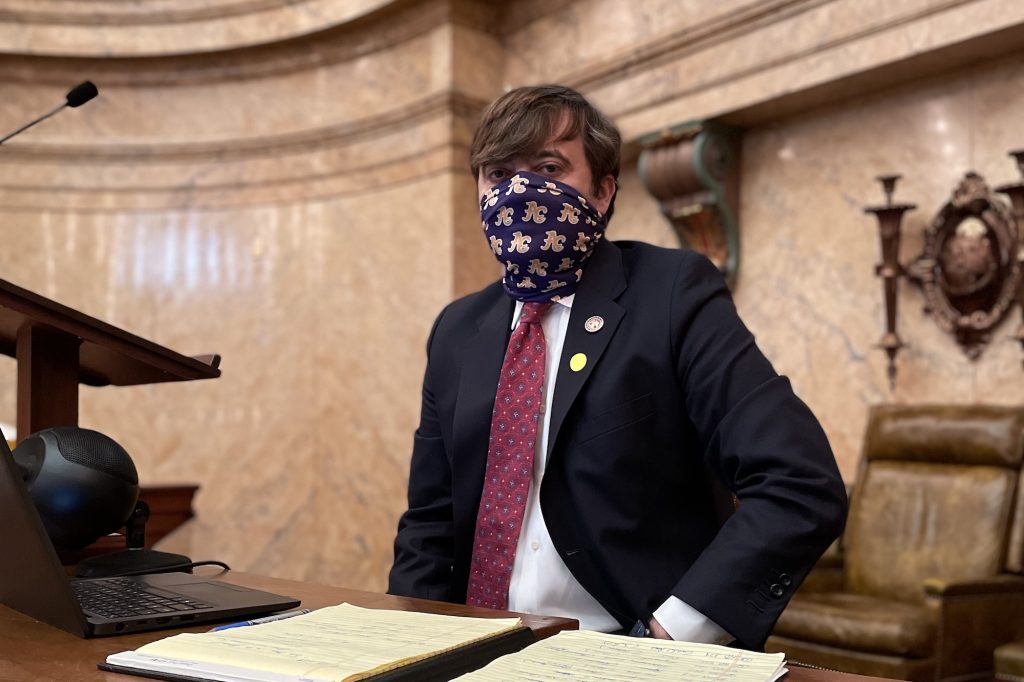
Those circumstances include “an emergency affecting the public peace, health, safety or financial solvency of the state as declared by two-thirds of the legislature,” Bain explained. “If that occurs, the legislature can change (the law) within two years, otherwise the legislature has to wait.”
The ballot-initiative process described in HCR 39 avoids the language that opened up the previous initiative to legal challenges. In order to place a proposal on the ballot, petitioners require signatures equal to 12% of the all votes cast in the most recent gubernatorial election. Those signatures must be divided up proportionally by congressional districts—meaning initiatives cannot be put to a vote with support in only one region.
The bill would further restrict the process by requiring ballot initiatives to address a single issue only, and if the initiative fails to receive the necessary votes, “it cannot be re-presented on a ballot for two years,” Bain said. Initiatives must receive a majority of votes cast in the affirmative, and no less than 40% of the total votes cast in the election as a whole.
The bill also proposes that initiatives with any significant costs to the state must designate in its text the source of funding for its goals “so that the measure will not result in a reduction in state funds available for expenditure by the Legislature,” the bill reads. Ballot initiatives that would cause a reduction in funding must specify which programs should be cut or eliminated in response.
All initiatives, if HCR 39 were to become law, would require the inclusion of a “fiscal analysis,” which the chief legislative budget officer must prepare.
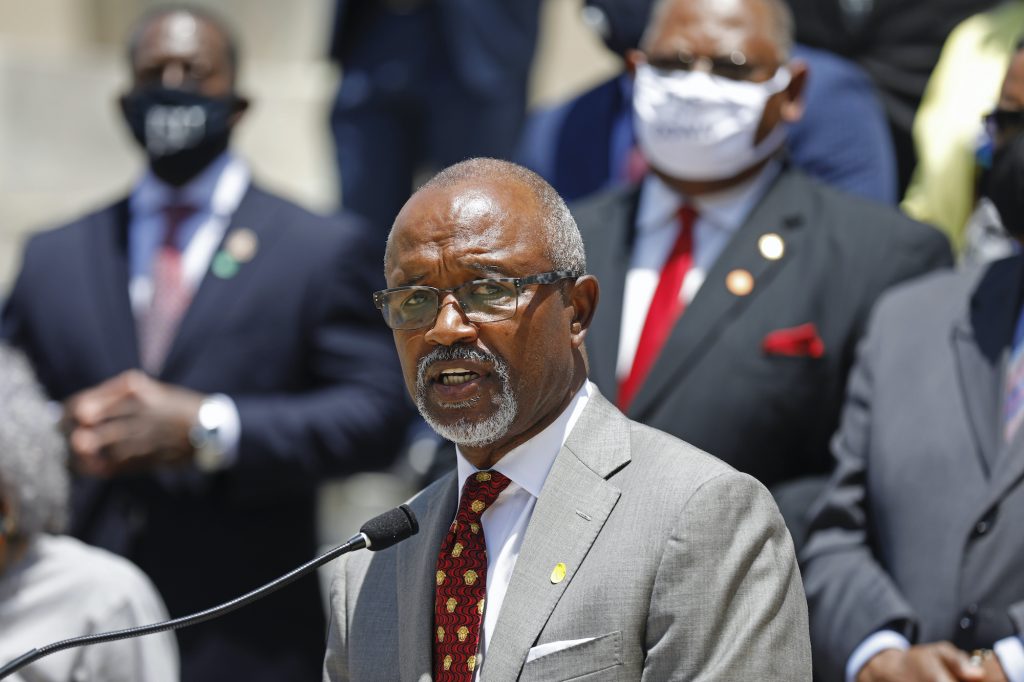
While the proposed initiative process is significantly more limited than what is currently available, it does eliminate the practice of alternative initiatives. Previously, the Legislature could propose alternative ballot initiatives, which could muddy popular understanding of the available choices, split the votes and increase the likelihood of any given ballot initiative failing for lack of majority support.
Debate on HCR 39 was brief but spirited. Rep. Robert Johnson III, D-Natchez, stood to propose four amendments, all narrowly defeated. Johnson’s amendments mostly attempted to disentangle the regulations imposed on the ballot-initiative process, like moving to strike the language that demanded state-sponsored fiscal analysis for all proposed ballot initiatives.
“I think it is a little overburdensome: putting too much of a burden on people when you’ve told them you’re giving them the freedom to have a voice that they otherwise wouldn’t have,” Johnson said.
Johnson’s amendments did not make it into the bill transmitted to the Senate, but leadership agreed to work with the representative during the conference period. HCR 39 passed 91-26, crossing the two-thirds threshold necessary to advance it to the Senate.
Postpartum Medicaid Revival
Sen. Kevin Blackwell, R-Southaven, has revived his postpartum Medicaid extension, a bill narrowly denied passage last session as part of a battle over the larger Medicaid tech bill. On Monday, that bill passed through the Senate with resounding support, now requiring only the assent of the House to arrive on Gov. Tate Reeves’ desk. Blackwell’s standalone version of Medicaid extension would allow new mothers to remain on Medicaid for 12 months after giving birth. Currently, pandemic relief has extended the deadline to this 12-month mark, but once the emergency funding ends, that benefit will once again end just 60 days after birth. Health-care experts say this will leave many mothers without medical insurance at a time when risk of serious medical complications is high.
The benefit enhancement would provide a lifeline to continued medical care for low-income mothers during the postpartum period, which is unusually dangerous for Mississippi mothers in particular. Nationwide, postpartum complications cause roughly one-third of all maternal mortality. In Mississippi, that number is a staggering 86% of all maternal deaths, one of many signs that maternal health care in the state is desperately lacking.
Dr. Charlene Collier, OB-GYN and director of the Mississippi Maternal Mortality Committee, told the Mississippi Free Press after the House stripped the postpartum coverage that the lack of coverage endangered the lives of mothers. “There’s no single medical or biological point in time that 60 days is tied to where all of the risks related to pregnancy are complete and that a mother no longer needs any medical care that may relate to being pregnant or postpartum,” she said.
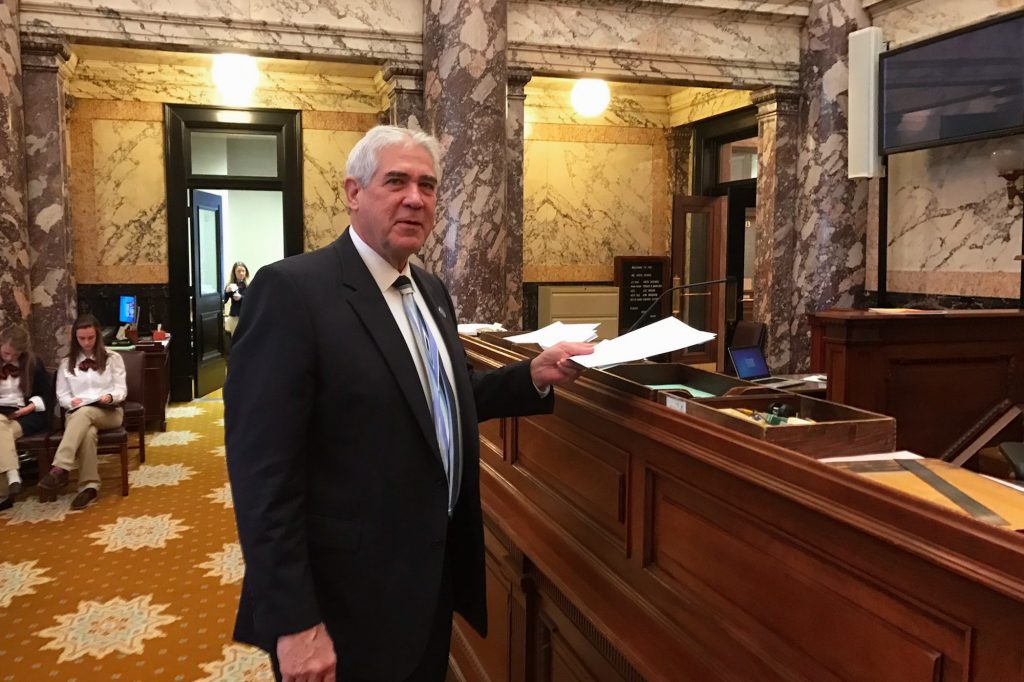
In an interview with the Mississippi Free Press, Blackwell said the conditions of new mothers in the state necessitates action. “Mississippi continues to lead the country in maternal mortality and infant mortality,” Blackwell explained.
“In states that have enhanced this benefit, there are different provisions. In some it’s six months, others up to a year. It provides (individuals), particularly the mother, with additional care. I just think it’s the right thing to do,” he added.
Momentarily disrupting the bill’s passage last week and this week was Sen. Chris McDaniel, R-Ellisville, who took to the Senate floor to challenge Medicaid and Medicaid spending on a broad, conceptual level. In an interview with the Mississippi Free Press, McDaniel said cost was the primary reason he opposed the bill and entered a motion to reconsider after it passed.
“Why would we extend a Medicaid provision of this without more proof that it works?” McDaniel asked. More importantly, Senator (Blackwell) who proposed the bill could not even give me a cost (estimate). That was the most pressing issue.”
The senator referenced studies challenging the effectiveness of Medicaid. This reporter asked if studies that analyzed Medicaid’s effects on a general population were relevant benchmarks for a population of mothers recovering from giving birth, especially those facing such severe health outcome disparities.
McDaniel acknowledged that new mothers may indeed be a special case in terms of health needs, but reiterated his unwillingness to support Medicaid bills without further cost analysis.
“When you consider the taxpayer’s position,” McDaniel said, “the question is how much money does that cost, and how does it correlate to improved outcomes?”
Blackwell told this reporter that the cost would not be close to prohibitive for the gain it would provide. “These are women that often aren’t the healthiest. I don’t know what the cost of a death is, but the cost of a few office visits surely can equal the cost of a life,” he said.
McDaniel’s objections received little support in the Senate. Prior to the bill’s passage out of the chamber, the senator acknowledged that his speech against it was primarily to encourage opposition to the bill in the House. The bill passed 46-5 and now awaits a hearing in the House Medicaid Committee.


